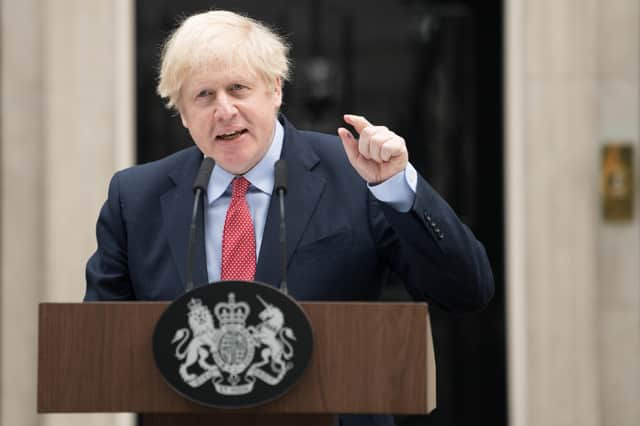BRUSSELS NOTEBOOK: Government hasn’t a grip of crises


Despite all the strains within the Executive here, the government is managing to make it look effective and decisive.
Admittedly here and in Edinburgh and Cardiff the issues to be tackled are not as great – but the Johnson government has not managed to come to grips with Brexit, coronavirus or the action needed to stem the now daily haemorrhage of jobs.
Advertisement
Advertisement
Its solutions, built around driving the retail and property sectors at the expense of manufacturing, are doomed to fail and lack imagination. This week the government found itself in disarray over whether or not face masks would need to be worn by cabinet ministers going to collect their lunch-time sandwiches. One of the problems is that spin doctors and special advisers are now more numerous in government that economists. Wise counsel does not necessarily prevail and how things are seen has become more important than what is being done.
The new Agriculture and Trade Commission, set up by the trade minister, Liz Truss, is a prime example. This body was deeply flawed from the outset and nothing that has happened since has made it any better. In its press release about the new body the government persuaded the farm lobby organisations into warm words about it. This could be a tactical error, or hopefully about getting a foot in the door in the hope that power can be exercised from within, despite the Commission having no power over policy. Time will tell, but the farming lobby has no option other than to play the hand dealt.
The risk lies in any acceptance that the creation of a weak body is a victory. It is not and it has certainly not ended the threat from cheap imports. What it has done is take the issue of cheap food imports out of the headlines. That is exactly what the government wanted. The members of the new Commission representing agriculture need to stick to their line that farming cannot be a casualty in the battle to secure trade deals. They also need to make clear that the EU-27 will, for the foreseeable future, remain the best market for food. They need to show that they are not there to compromise or facilitate trade deals for the government.
The EU’s latest trade figures, just released for the first quarter of the year, treat the UK for the first time as a third country for both imports and exports. EU trade in food with the rest of the world continued to boom, with sales up by six per cent while non-food EU exports fell by 20 per cent because of the coronavirus pandemic. Food imports to the EU fell by two per cent, meaning its positive balance of trade improved. For the UK, sales into the EU-27 fell by 11 per cent, but sales from the EU into Britain only fell by eight per cent. This is a wake up call for those negotiating post-Brexit arrangements – and a reminder that this is a situation where no deal would leave both sides losers.
Advertisement
Advertisement
The EU has also published its short term market forecasts for agriculture and food. Despite the market upset from coronavirus, production of the major agricultural commodities should end up largely the same in 2020 as in 2019. The exception is beef which was hit hard by a downturn in markets and prices. This was largely down to the collapse of the food service sector across Europe. The report says that with restaurants opening again, albeit with restrictions, and tourism beginning to recover markets are moving back towards more normal conditions. However this is a move to a new normality likely to be around for a long time, rather than a return to the conditions of just six months ago.
The report concludes that for farming coronavirus came as a demand rather than a supply shock. This is because demand for food is not easily blown off course. While coronavirus brought challenges, particularly for beef and lamb, this was down to the loss of the food service sector rather than any loss of retail demand. On that basis the report concludes farming is well placed to recover, as markets move back towards more normal patterns of demand. That is good news, but with the challenge of Brexit and the push for new trade deals farmers here could find that normality remains elusive.